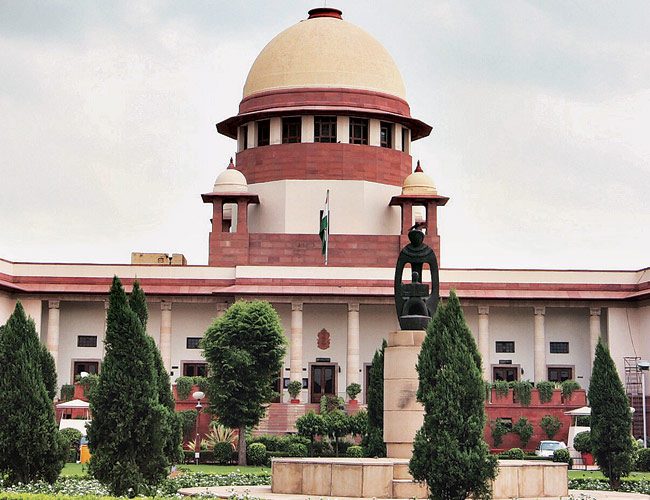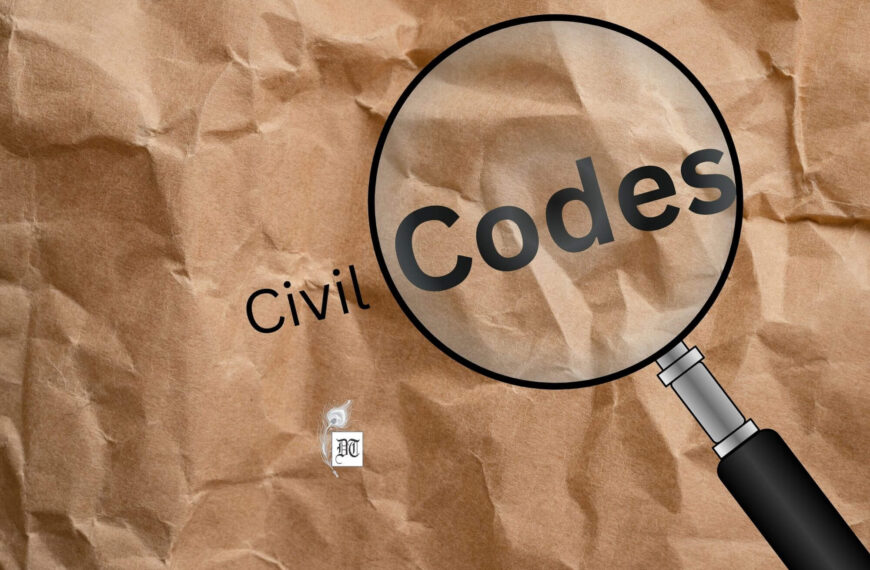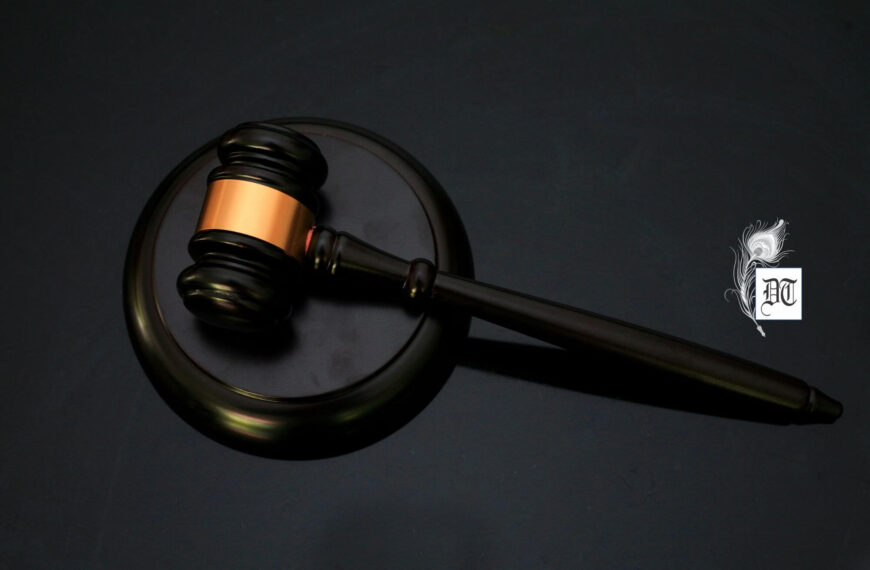A shocking judgement of the Supreme Court on the Scheduled Castes & Tribes Act and a weekly round-up of the major decisions of the courts in India as also legal policy developments, for Different Truths.
In a shocking judgment, the Supreme Court, in a two-judge bench of Justice Adarsh Goel and Justice U.U. Lalit has completely overturned the Scheduled Castes and Scheduled Tribes (Prevention of Atrocities) Act, 1989 (‘POA’), by diluting its provisions. Dealing with a case of a Principal from Maharashtra facing prosecution under the Act, the Court made several unnecessary observations about the alleged ‘misuse’ of the Act, without citing any proper evidence or data.
Commenting on the working of the Act in last three decades, the Court ruled, “…it has been judicially acknowledged that there are instances of abuse of the Act by vested interests against political opponents in Panchayat, Municipal or other elections, to settle private civil disputes arising out of property, monetary disputes, employment disputes and seniority disputes60. It may be noticed that by way of rampant misuse complaints are ‘largely being filed particularly against Public Servants/quasi-judicial/judicial officers with an oblique motive for the satisfaction of vested interests.”
The Court further observed that “the legislature never intended to use the Atrocities Act as an instrument to blackmail or to wreak personal vengeance. The Act is also not intended to deter public servants from performing their bona fide duties. Thus, unless exclusion of anticipatory bail is limited to genuine cases and inapplicable to cases where there is no prima facie case was made out, there will be no protection available to innocent citizens.”
The Court thereafter laid down the following directions:
- Anticipatory bail can be granted if no prima facie case is made out or the complaint is found to be prima facie mala fide;
- A public servant can only be arrested under POA after approval from the appointing authority;
- A private person can only be arrested, after approval from SSP for reasons to be recorded in writing.
- Before the arrest, a preliminary enquiry ought to be carried out by DSP to ensure that the complaint is not frivolous or motivated.
In sum, the Court in one stroke has managed to dilute a hard-fought but rarely implemented the law and render it almost redundant. The Court’s repeated observations on the alleged misuse of law and being an instrument of blackmail smacks of complete caste prejudice and bias against the Dalits and lower castes. The oft-repeated concern for ‘protection of innocents’ does not appear when thousands of Dalits, Muslims, and other marginalised populations are rotting in jails as under trials, without a word on their right to be released on bail. By going against the clear mandate of law, which excluded anticipatory bail for offences under POA, the Court has shown scant regard for the legislative wisdom as well as the legislative domain of law-making. It is common knowledge that police are highly reluctant to lodge FIRs under POA, and even when they are registered, matters are not properly investigated or prosecuted. In this context, rates are acquittals are no reflection that false cases are being prosecuted under the law.
Never before, a law was as recklessly mutilated as has happened in this judgment. In times, when the horrific anti-Dalit violence at Una in Gujarat is still fresh in public minds, along with a spate of atrocities in the last few years, it is highly disconcerting that the Court blames the POA for spreading caste hatred, and does not criticise the entrenched caste hierarchy of the entire Indian society. It is unfortunate that while the Bench quotes from B.R. Ambedkar, it has singularly failed to understand Ambedkar’s message and politics. The history of upper caste atrocities against the lower caste in India is so long that if the Bench wanted, it only had to dip a little to know why the law was enacted and why is it necessary to retain its stringency.
Predictably, the judgement has led to a furore amongst parliamentarians, Dalit activists, and jurists. Both lawmakers and activists have demanded an immediate review of the judgment and the revocation of the directions. Republic Party of India (A), an ally of BJP at the Centre, already declared their intention to file a review of the decision, notwithstanding the Government’s stand.
It is perhaps no coincidence that the same Bench had sought to dilute the anti-dowry law, by issuing similar directions against the grain of the law, which had to be overturned by the Chief Justice after few months, owing to a huge hue and cry amongst women’s groups and lawyers. One hopes that the same fate awaits this aberration of a judgment.
[Dr. Subhash Kashinath Mahajan vs. the State of Maharashtra, Criminal Appeal No. 416 of 2018, date of judgment: 20.03.2018]
Weekly Round-Up of Major Decisions of the Courts in India as also Legal Policy Developments
- Even a destroyed mosque has religious significance– The Supreme Court continued to hear arguments in Ram Janmabhoomi-Babri Masjid dispute. Mr. Rajeev Dhawan, Senior Advocate, appearing for the appellants argued that there was a need to revisit the judgment of 5 judge bench in Dr. Ismail Farooqui’s case, wherein it was held that Article 25 does not guarantee that each and every place of worship needs to be protected and that mosque was not an essential part of Islam. Refuting these contentions, Mr. Dhawan argued that a mosque might be destroyed, but the religious significance attributed to it could not be destroyed. [ Siddiq v Mahant Suresh, Civil Appeal Nos.10866-10867/2010, date of order: 23.03.2018].
- Attorney General defends Aadhaar in the Court: The Petitioners finished their submissions this week in challenging Aadhaar in Supreme Court, and the Attorney General of India, Shri K.K. Venugopal, began his arguments. He submitted that the issue involved essentially two aspects, i.e., firstly, security of data, in terms of access to biometrics and demographic database, and secondly, preventing leakages in social security schemes. He even got the Bench to allow a presentation by UIDAI CEO, Mr. Ajay Bhushan Pandey, about the uniqueness of Aadhaar and its robust security features. [Justice Puttaswamy v Union of India, Writ Petition (Civil) No. 494/2012, date of order: 22.03.2018].
- Supreme Court issues directions in RTI matters: Significant directions were issued by the Supreme Court this week to all government authorities pertaining to the Right to Information Act, 2005 and its Rules. The Court directed that fee for an RTI application cannot exceed Rs 50/-, while the fee for photocopying charge per page cannot exceed Rs 5/-. Further, the Applicant need not disclose any motive for seeking the information nor any permission is required from Chief Justice of High Courts for disclosure of information, except when such disclosure is exempted under the RTI Act.[Common Cause vs. High Court of Allahabad & Anr., Writ Petition (Civil) No. 194 of 2012, date of order: 20.03.2018].
- The trial in Junaid’s lynching case stayed by the Supreme Court: The Supreme Court issued notice on a petition filed by the father of late Junaid, who was horrifically lynched and killed in June 2017 owing to his Muslim identity, seeking a CBI investigation into the case. Appealing against a High Court order denying such relief, the Petitioner argued that the investigation carried out by the State agencies was highly shoddy and casual, and meant to protect the accused. The Supreme Court further stayed the trial in Haryana and sought a response from the government on the petition. [Jalalludin vs. State of Haryana, Special Leave Petition (Criminal) No. 2603 of 2018, date of order: 19.03.2018].
- Disqualification of 20 AAP MLAs struck down: In a major embarrassment to the Election Commission of India (‘ECI’), the Delhi High Court struck down as bad in law the recommendation of ECI to disqualify 20 AAP MLAs in January 2018 on the ground that they were holding the office of profit. The High Court directed the ECI to take a fresh look at the allegations and comply with the principles of natural justice since in the present case, the MLAs were not given an opportunity to defend themselves before ECI recommended their disqualification. The ECI further has to hear arguments denovo on the scope of ‘office of profit held under the Government’ and the factual matrix of the AAP MLAs. [Kailash Gahlot & Ors. vs. Election Commission of India, Writ Petition (Civil) No. 750/2018, date of decision: 23.03.2018].
- Karti Chidambaram granted bail in INX Media case– The Delhi High Court finally granted bail to Karti Chidambaram who is accused of offences under the Prevention of Money Laundering Act, 2002 relating to INX Media case, and was arrested by the CBI on 28th February 2018. He was kept in CBI custody for almost two weeks and then in judicial custody for another two weeks. The High Court, while granting bail, noted that the accused had roots in the society, his parents were senior lawyers, and he had a family to take care. At the same time, the Court noted that the CBI had failed to find any incriminating evidence when he was in their custody. The Court then asked Karti to deposit his passport with the trial court, and not leave the country without court’s permission, and cooperate with the investigation. [Karti P. Chidambaram vs. Central Bureau of Investigation, Bail Application No. 573/2018, date of order: 23.03.2018].
- Notice issued in the 2G Spectrum appeals case–The Delhi High Court issued notice on an appeal filed by the CBI against the acquittal of A. Raja, Kanimozhi and 17 others accused in the 2G spectrum allocation scam. On 21st December 2017, the Special CBI Court presided by Judge O.P. Saini had acquitted all the accused in the case, and blamed the CBI for shoddy prosecution. The High Court, while issuing a notice, directed that status quo should be maintained with regard to the properties attached by the ED in the PMLA case. [The Joint Director, Director of Enforcement vs. A. Raja & Ors., CRL.LP No. 184/2018, date of order: 21.03.2018].
- Any subsequent bequeath that is repugnant to the first bequeath is invalid-The Kerala High Court following the law settled by the Supreme Court relating to the interpretations of wills with inconsistent clauses, held that if an earlier clause gives absolute title, then the subsequent clause cannot give inconsistent directions to take away the absolute title given by the earlier clause. The present case pertained to a suit for recovery of possession, wherein the Defendant had been granted absolute title to the property, subject to the condition that if he remained childless, the property would go back to the other brother. The Plaintiff had filed the suit challenging his brother’s title saying that he was divorced and remained childless. While rejecting the contentions, the High Court held that the subsequent bequest was liable to be ignored and had no validity in the eyes of the law. [ X vs. Y, RFA N. 281 of 2015, date of order: 21.03.2018].
- Laloo Prasad Yadav sentenced to 14 years imprisonment in fodder scam– In a major blow to the RJD leader, the Special CBI Court sentenced him to 14 years rigorous imprisonment and imposed fine of Rs 60 lakhs in a Fodder scam case related to fraudulent withdrawal of Rs 3.13 crores from the Dumka treasury. He was sentenced to seven years and fined Rs 30 lakh for offences under Sections section 120/420, 409, 467, 468, 471 and 477A of Indian Penal Code, 1860. Further, he has been sentenced to another seven years and fined Rs 30 lakhs again for offences under the Prevention of Corruption Act, 1988. Surprisingly, the sentences would run consecutively, and not concurrently.
Other Legal Developments
- Cabinet approves amendments to the Surrogacy (Regulation) Bill, 2016– The Union Cabinet has cleared certain amendments to be made to the Surrogacy (Regulation) Bill, 2016, pursuant to the recommendations of the Parliamentary Standing Committee, which were submitted in Parliament in August 2017. It is not clear which recommendations, if any, had been accepted by the Government. The Standing Committee Report had called for wide-ranging changes in the Bill, including the change from altruistic surrogacy to ‘compensated surrogacy model’, thereby recognising women’s right to reproductive autonomy and choice.






 By
By
 By
By
